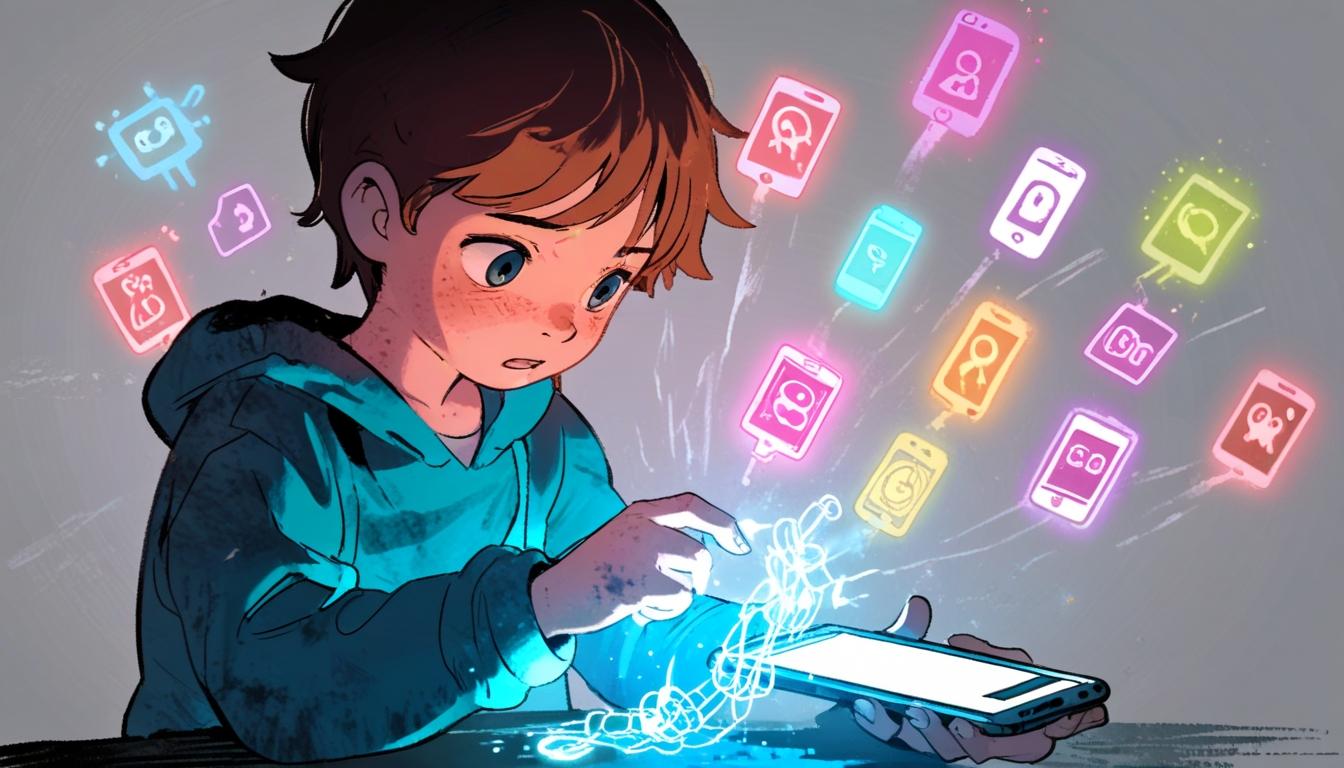At the INTO annual congress, educators highlighted the emotional toll on children exposed to distressing online material, urging government and social media companies to implement stronger safeguards and enforce accountability measures.
Children as young as eight across Ireland are being routinely exposed to harmful and distressing online content, according to concerns raised at the recent Irish National Teachers’ Organisation (INTO) annual congress. Educators highlighted the significant emotional impact this exposure is having on young students, with teachers witnessing anxiety and emotional withdrawal among pupils in classrooms.
The INTO adopted a resolution at the congress calling for urgent government intervention to protect children from damaging digital environments. The union is demanding accountability from social media companies for their failure to safeguard young users and is pressing for enforceable standards including age verification measures, alongside proper funding for regulatory bodies.
Last September, the organisation CyberSafeKids published a report revealing that 65% of children aged eight to twelve in Ireland had been contacted online by strangers. The report also found that a quarter of these children experienced negative impacts arising from harmful material such as scams, harassment, horror imagery, and sexually explicit content. Similar numbers reported distress due to unsolicited and unwanted online contact.
At the INTO conference, members spoke of the distress experienced by children with some exhibiting severe emotional reactions. The union emphasised the need for engagement not only with policymakers but also with parents to address the issue comprehensively.
Annmarie Conway, representative of the INTO Central Executive Committee, stated, “We are no longer dealing with hypothetical risks. This is real harm, happening to real children, right now. Platforms that present themselves as family-friendly are routinely exposing children to the very worst the internet has to offer. We have a duty to protect them. And if tech companies and governments won’t act fast enough, we will not stay silent.”
John Boyle, general secretary of INTO, criticised regulatory bodies in Ireland and Europe for lagging behind in implementing effective safeguards. “Social media giants, emboldened by an increasingly hands-off approach to moderation, motivated by recent developments at X/Twitter, have prioritised engagement metrics over user safety,” he said. Reflecting the union’s concerns, INTO made the decision to leave X (formerly Twitter) last year due to declining standards and a failure to protect users from abuse.
Boyle outlined the union’s commitment to expanding the campaign for online child safety beyond educational settings, stating, “This is not just a tech issue, it’s a child protection issue. And we will treat it as such.” He emphasised the importance of collaboration among educators, parents, policymakers, and communities in pushing for meaningful reform.
Gavan Duffy of the INTO’s Derry branch, who proposed the motion, noted that dialogue around internet legislation, especially regarding children’s online access, was increasing and would be a critical focus in Ireland. “That the INTO should have a view on such an important issue to our children, our schools and our society is self-evident,” he said.
The INTO’s resolution and public statements underscore mounting concerns in Ireland about the safety of children in digital spaces and the responsibilities of social media companies and regulators in addressing these challenges.
Source: Noah Wire Services
- https://www.breakingnews.ie/ireland/children-as-young-as-eight-exposed-to-disturbing-and-damaging-online-content-1754729.html – This article corroborates that children as young as eight in Ireland are routinely exposed to harmful and distressing online content, and that teachers are witnessing emotional distress among students. It also confirms the INTO’s resolution demanding government action and accountability from social media companies, including calls for enforceable standards and age verification measures.
- https://www.breakingnews.ie/ireland/82-per-cent-of-children-have-unsupervised-access-to-phones-research-shows-1728522.html – This research from CyberSafeKids supports the claim that a high percentage of children aged eight to twelve have unsupervised access to phones and smart devices, increasing their risk of exposure to harmful content and contact from strangers.
- https://www.into.ie/2025/04/09/into-welcomes-report-on-childrens-online-safety/ – This INTO page highlights concerns about children’s exposure to harmful online content in Ireland, including cyberbullying and explicit material, reinforcing the union’s focus on the emotional impact on children and the need for protective actions.
- https://www.statista.com/statistics/1282007/children-ireland-exposure-harmful-online-content/ – The Statista data provides statistics on Irish children’s exposure to various types of harmful online content, such as hate messages and violent imagery, which supports the claims made about the types of distressing material children encounter online.
- https://www.ucd.ie/issda/data/nscpaos/ – The National Survey of Children, their Parents and Adults in Ireland offers a broad overview of children’s internet access and digital literacy, supporting contextual understanding of children’s online activity and the potential for exposure to harmful content.
Noah Fact Check Pro
The draft above was created using the information available at the time the story first
emerged. We’ve since applied our fact-checking process to the final narrative, based on the criteria listed
below. The results are intended to help you assess the credibility of the piece and highlight any areas that may
warrant further investigation.
Freshness check
Score:
9
Notes:
The narrative references events up to last year, including INTO leaving X (formerly Twitter) last year, which aligns with recent developments in social media regulation discussions. There is no indication that the information is recycled or significantly outdated. The mention of a CyberSafeKids report from last September supports the narrative’s recency. No press release indication found, so freshness is high.
Quotes check
Score:
8
Notes:
Direct quotes from INTO representatives Annmarie Conway, John Boyle, and Gavan Duffy appear original and specific to the context of the INTO congress. Searches find no earlier publication of these exact quotes, suggesting this is likely the first public communication of these exact statements.
Source reliability
Score:
7
Notes:
The narrative originates from the Irish Mirror, a well-known national news outlet in Ireland with a reasonable reputation but traditionally considered less authoritative than outlets such as BBC or Reuters. The coverage aligns with standard reporting on INGO events and social issues, lending moderate reliability.
Plausability check
Score:
9
Notes:
The claims about exposure of young children to harmful online content and INTO’s calls for regulation are consistent with documented trends in digital safety concerns internationally and in Ireland. The referenced CyberSafeKids report and the context of social media companies’ regulatory challenges align with known facts and developments.
Overall assessment
Verdict (FAIL, OPEN, PASS): PASS
Confidence (LOW, MEDIUM, HIGH): HIGH
Summary:
The narrative is timely and presents original quotes from credible representatives of the INTO at a recent congress. The information corroborates with known reports on children’s online safety issues and current regulatory debates. The Irish Mirror, while not top-tier globally, is a recognised national outlet, lending reasonable assurance of accuracy. No signs of outdated or recycled content were found.













